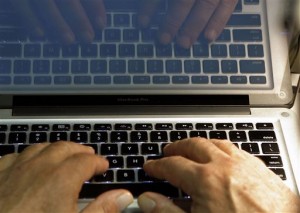Online libel defies UN rights panel’s view – law expert
MANILA, Philippines – Online libel in the Cybercrime Prevention Act of 2012 (Republic Act No. 10175) is not in accordance with a United Nations (UN) treaty that covers civil and political rights, a media law expert told the Senate Monday.
Lawyer Gilbert Andres of Media Defense Southeast Asia said during a Senate hearing reviewing the anti-cybercrime law that online libel is an “outright defiance of UN human rights committee’s view.”
He cited article 19 covering freedom of expression of the International Covenant on Civil and Political Rights (ICCPR) that the Philippines signed on December 19, 1966 and ratified on October 23, 1986.
Paragraphs of that article state: “1. Everyone shall have the right to hold opinions without interference” and “2. Everyone shall have the right to freedom of expression; this right shall include freedom to seek, receive and impart information and ideas of all kinds, regardless of frontiers, either orally, in writing or in print, in the form of art, or through any other media of his choice.”
“Prior to this cybercrime law, the Philippines was cited by the UN for not interfering with the Internet,” Andres said.
He said that the UN has recognized the “global and open nature of the Internet” and that Sections 4(c)(4), 5, 6, and 7 “squarely contradict the global nature of the Internet” and bring a “chilling effect” on people.
Engineer Pierre Tito Galla, Co-Founder of Democracy.net.ph, also called for the repeal of libel provisions saying that “our rights online are our rights offline.”
Bloggers and student groups were also present in the hearing headed by Senator Ralph Recto, Chairman of Committee of Science and Technology, to voice out their side on the anti-cybercrime law.
RELATED STORIES
87% of Filipino Internet users have been victims of cybercrimes
Poe: Child porn underscores importance of cybercrime law
